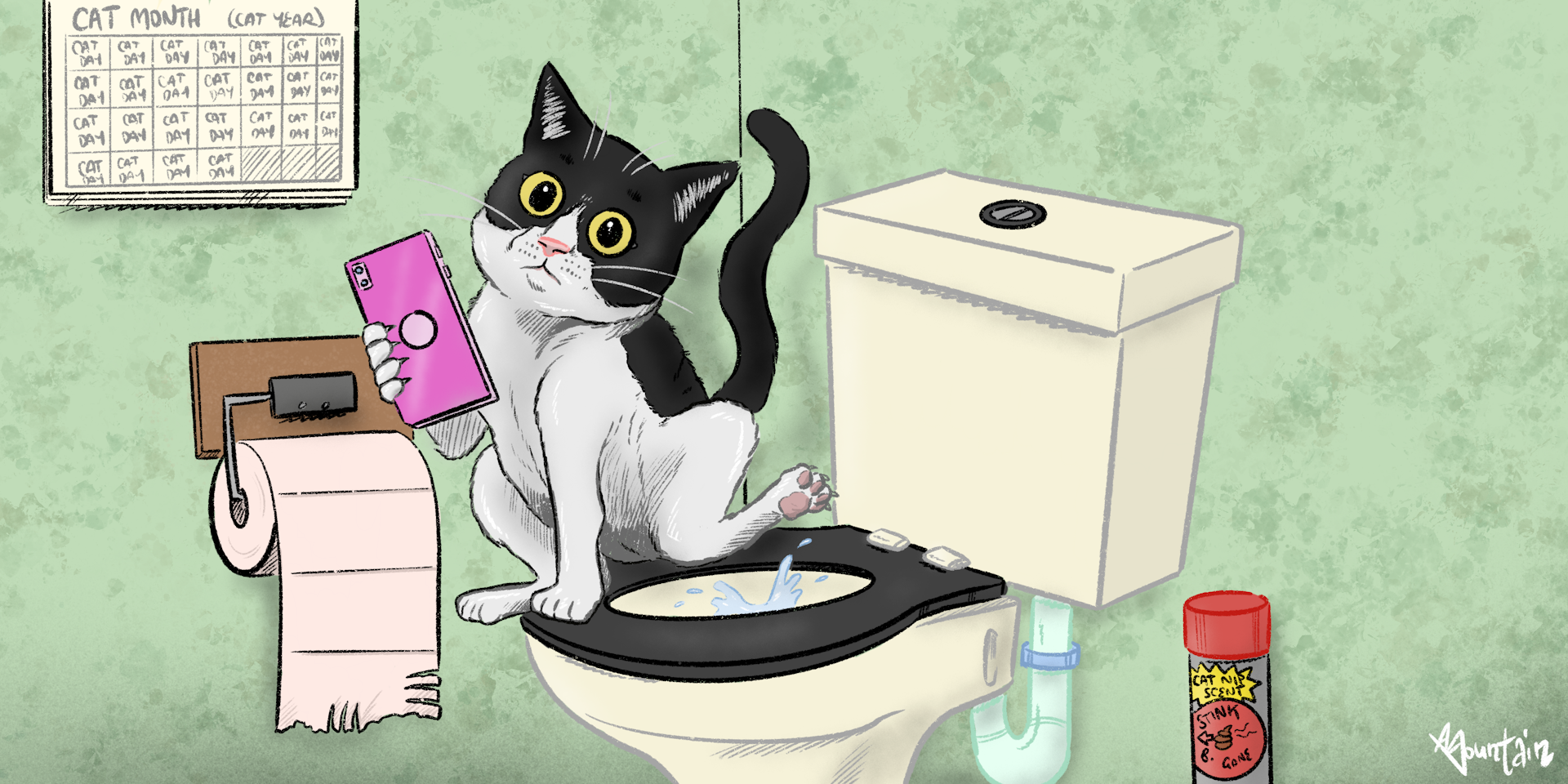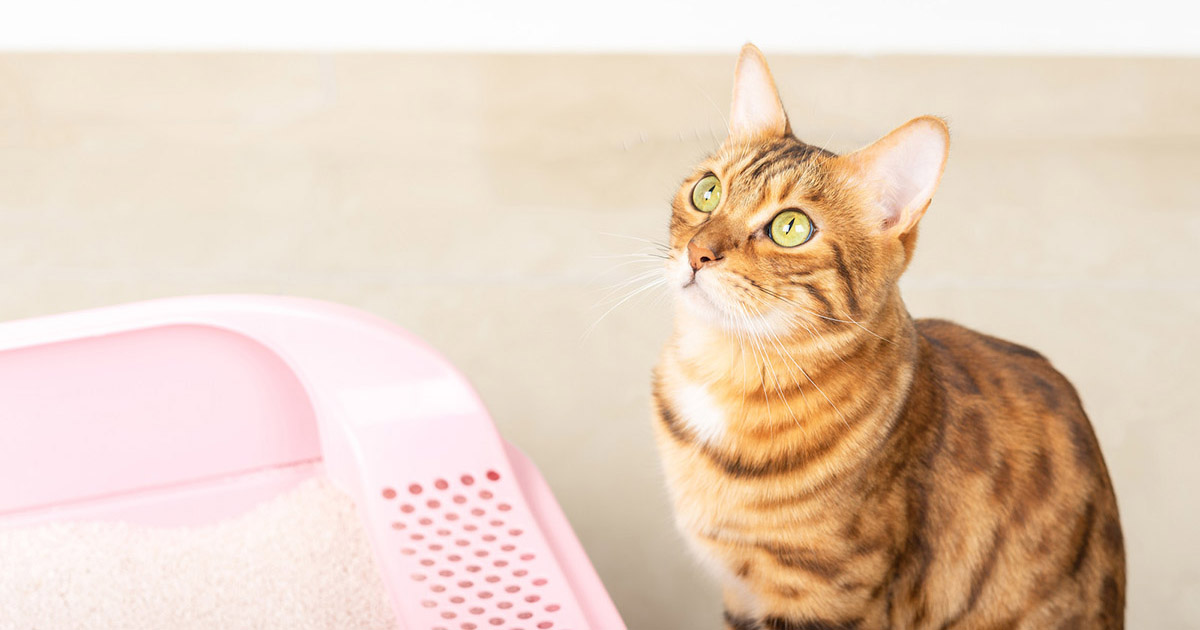Don't Flush Cat Poop Down Your Toilet - Maintain Your Home's Pipe System
Don't Flush Cat Poop Down Your Toilet - Maintain Your Home's Pipe System
Blog Article
This post down below about Can You Flush Cat Poo or Litter Down the Toilet? is without a doubt compelling. Check it out for your own benefit and figure out what you think about it.

Intro
As cat proprietors, it's necessary to be mindful of exactly how we deal with our feline close friends' waste. While it may seem practical to purge cat poop down the toilet, this method can have damaging consequences for both the environment and human health and wellness.
Ecological Impact
Purging feline poop presents dangerous pathogens and bloodsuckers right into the water system, positioning a substantial risk to aquatic ecosystems. These pollutants can adversely influence aquatic life and concession water top quality.
Wellness Risks
Along with ecological worries, purging feline waste can likewise position health risks to humans. Pet cat feces might include Toxoplasma gondii, a parasite that can cause toxoplasmosis-- a possibly serious illness, particularly for expectant ladies and individuals with damaged immune systems.
Alternatives to Flushing
Fortunately, there are much safer and much more liable ways to dispose of pet cat poop. Think about the adhering to alternatives:
1. Scoop and Dispose in Trash
One of the most common technique of dealing with feline poop is to scoop it right into a biodegradable bag and toss it in the garbage. Be sure to use a specialized clutter scoop and get rid of the waste immediately.
2. Usage Biodegradable Litter
Opt for biodegradable cat trash made from materials such as corn or wheat. These trashes are environmentally friendly and can be securely disposed of in the garbage.
3. Hide in the Yard
If you have a backyard, take into consideration burying pet cat waste in a marked location far from veggie gardens and water resources. Make certain to dig deep enough to stop contamination of groundwater.
4. Set Up a Pet Waste Disposal System
Purchase a family pet waste disposal system especially designed for pet cat waste. These systems utilize enzymes to break down the waste, decreasing smell and environmental impact.
Verdict
Liable animal possession extends past supplying food and shelter-- it additionally includes proper waste monitoring. By refraining from flushing cat poop down the commode and opting for alternative disposal techniques, we can decrease our ecological footprint and secure human wellness.
Why You Should Never Flush Cat Poop Down the Toilet
A rose by any other name might smell as sweet, but not all poop is created equal. Toilets, and our sewage systems, are designed for human excrement, not animal waste. It might seem like it couldn’t hurt to toss cat feces into the loo, but it’s not a good idea to flush cat poop in the toilet.
First and foremost, assuming your cat uses a litter box, any waste is going to have litter on it. And even the smallest amount of litter can wreak havoc on plumbing.
Over time, small amounts build up, filling up your septic system. Most litter sold today is clumping; it is made from a type of clay that hardens when it gets wet. Ever tried to scrape old clumps from the bottom of a litter box? You know just how cement-hard it can get!
Now imagine just a small clump of that stuck in your pipes. A simple de-clogger like Drano isn’t going to cut it. And that means it’s going to cost you big time to fix it.
Parasitic Contamination
Believe it or not, your healthy kitty may be harboring a nasty parasite. Only cats excrete Toxoplasma in their feces. Yet it rarely causes serious health issues in the cats that are infected. Most people will be fine too if infected. Only pregnant women and people with compromised immune systems are at risk. (If you’ve ever heard how women who are expecting are excused from litter cleaning duty, Toxoplasma is why.)
But other animals may have a problem if infected with the parasite. And human water treatment systems aren’t designed to handle it. As a result, the systems don’t remove the parasite before discharging wastewater into local waterways. Fish, shellfish, and other marine life — otters in particular — are susceptible to toxoplasma. If exposed, most will end up with brain damage and many will die.
Depending on the species of fish, they may end up on someone’s fish hook and, ultimately on someone’s dinner plate. If that someone has a chronic illness, they’re at risk.
Skip the Toilet Training
We know there are folks out there who like to toilet train their cats. And we give them props, it takes a lot of work. But thanks to the toxoplasma, it’s not a good idea.

We were introduced to that editorial about How to Dispose of Cat Poop and Litter Without Plastic Bags through someone on a different web blog. Do you know another person who is sincerely interested in the subject? Take a moment to promote it. Thank-you for going through it.
Schedule Here Report this page